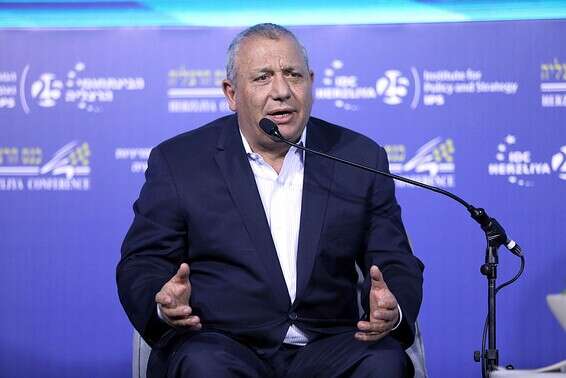The screening process based on assessments by psychologists only contributes to the preservation of social disparities • The solution is not necessarily to abolish the IBA method - but to include commanders in the process
An IDF soldier is training
Photo:
Eyal Margolin, Ginny
For many years, the IDF (Quality Group) has been a criterion in the IDF for measuring the performance potential of candidates for military service, whether they are suitable for certain units, or for officer tracks.
Recently, a study by Zeev Lerer, a graduate of the IDF's Department of Behavioral Sciences, showed that the same IBA, which is calculated after the first order in which 11th grade students report, shifts social gaps.
In simple language, the IDF, which is supposed to be a classic social leadership mechanism that contributes to functional stratification in Israeli society and produces solidarity, is practical - not only does it not contribute to reducing the gaps, but it even preserves them.
It's hard to argue with these findings, which after all are based on data accumulated over many years - and I have no intention of refuting them either.
However, it is impossible to ignore the fact that the IDF Combat Command is currently based on officers who came from all over Israeli society - Ashkenazi, Mizrahi, religious, secular, Jews and non-Jews.
It seems that in the last generation the situation has changed - let's not forget that Chief of Staff Eisenkot is from a Moroccan family, the commander-in-chief of the Central Command is Yemeni, and the commander of the land arm is a native of Dimona.
At the very least I can say that this field of research can be rich in insights, certainly in terms of the social impacts of service in the IDF. And yet, as one who is familiar with the various screening experiences, I find it appropriate to present a theory and a recommendation alongside it.
It is clear that even if the IBA mechanism is changed in one way or another, the IDF will in any situation be required to define a bar of qualities, certainly in an era in which soldiers serve two and a half years, and female soldiers (non-combatants) serve two years.
The IDF must define as soon as possible who is suitable for the officer, and it must have a mechanism that will weigh all the data at the recruitment stage.
I argue that the problem does not necessarily lie in the ruler, but also in the person who measures.
As a rule, this practice is the domain of psychologists - they are in charge of the various diagnoses, and the decisions related to the abilities of candidates for service go through the psychological filter.
I do not deny the science of psychology - it is clear that this is a proven scientific field, but there are also quite a few mistakes.
Take for example the aspect of the personal interview - it is clear to all of us that whoever speaks eloquently and coherently in the interview will get a high score.
I'm just not sure that the ability to speak fluently is a crucial measure of a man or woman's ability to harness commands to them and be military leaders, even at the junior level of an officer.
I experienced in the services of commanders who had difficulty with the language and were field leaders at the highest level - their soldiers worshiped them.
Some of these commanders serve in the IDF as lieutenants generals and lieutenants generals and are excellent officers. Over the years they have become more eloquent, but this matter has never been a limitation for them. Personal example and professionalism, which are among the most important values, The fighting.
I argue that leaving the classifications and diagnoses in the hands of psychology and not being spent - is incorrect.
It is appropriate and correct to include commanders in the selection processes, and to give their opinion more weight.
An experienced commander knew how to identify leadership qualities among candidates for the service, which the IBA mechanisms miss.
The recommendation to the IDF is to include experienced commanders in all screening processes. The balance between seeing the commander's field and the field of psychological research is the right balance. By the way, it was often the commanders' recommendation that balanced the IBA data in command decisions, but in many cases the army does not Commander to determine.
Thus, we produce for ourselves a "stanza" of soldiers, commanders and officers according to a certain norm, the measurement of which does not necessarily bring us people who have something else in them, in a much more significant field than any find under the neon lamps of the emergency rooms.
Bottom line, the ones who should be trusted with the manpower sorties are the commanders, the commanders' vision should lead, and it should also reflect the scientific vision through the psychological counseling.
And in this context, the IDF is required to turn the creators over and bring the commanders back.
The author is a former IDF brigade commander, currently a military-social relations researcher

